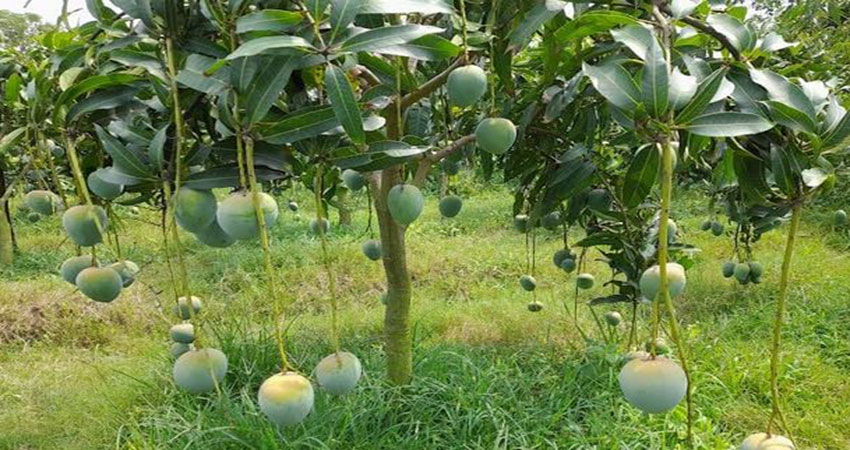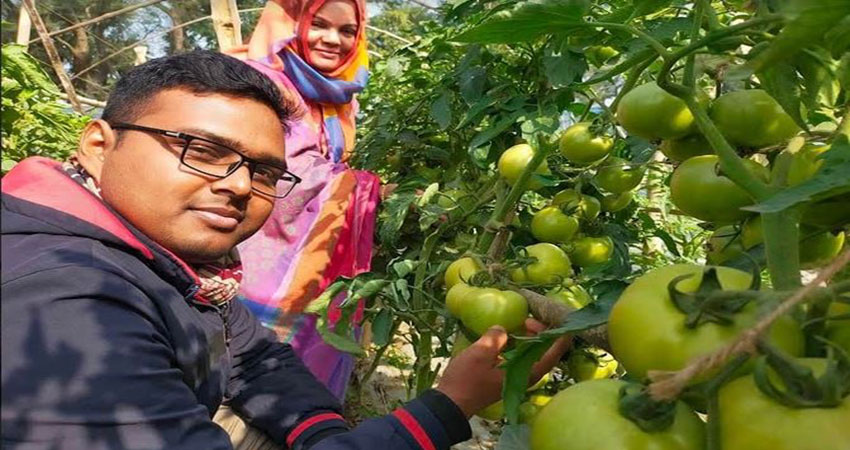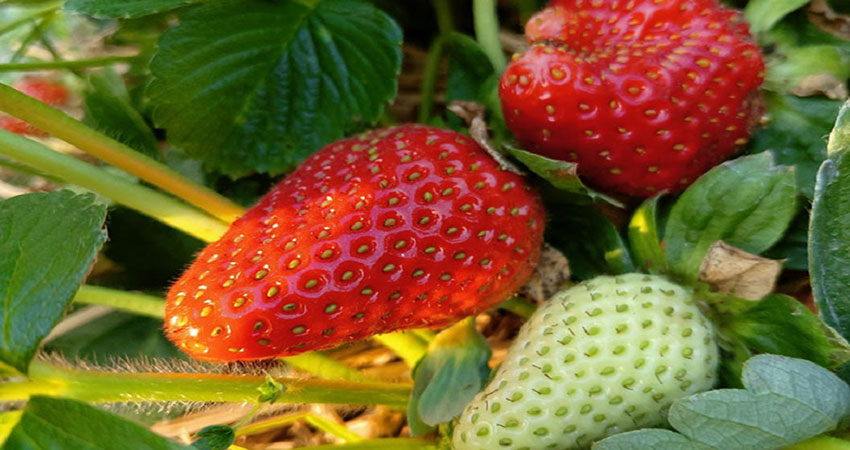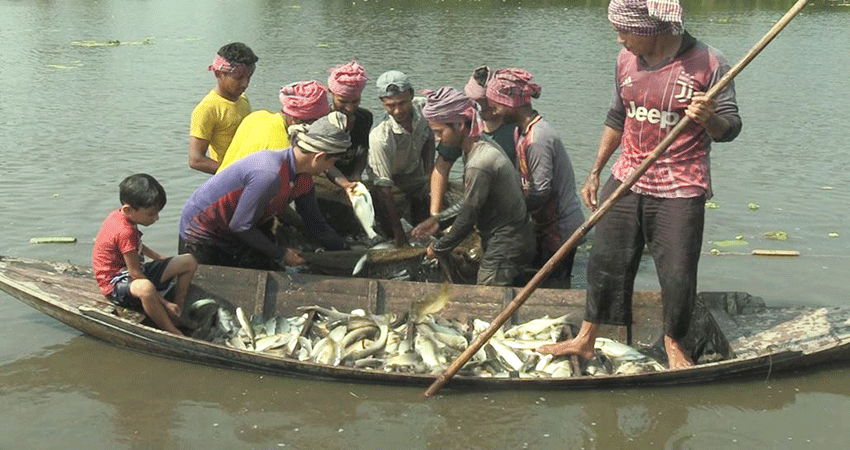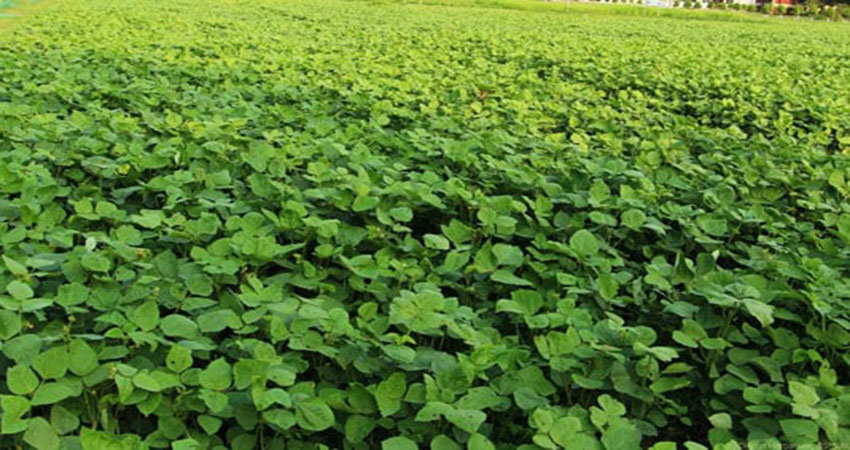In the last couple of years, a silent revolution has happened in both farming and yield of mango in the region, including its vast Barind tract, vibrating the local economy.
Witnessing the success many more people, particularly the grassroots farmers and entrepreneurs, are adopting the method of Ultra High Density Mango Planting (UHDMP) and making profit.
This method can enhance agro-water productivity along with reducing groundwater extraction and increasing farmers' income focusing on the water-stressed Barind area.
Rubel Hossain, 27, a young farmer of Toktokia village of Tanore upazila, has become an icon in this field as he found the path of ensuring improved life for his family members through extra income.
Last season, he had sold around 916 kilograms of mangos from 130 trees worth around Taka 55,000.
Hossain said more income will come from a piece of land with the application of new agricultural method without any hazard as it will increase gradually.
Rafikul Islam, 50, another farmer of Enayetpur village in Mohadevpur Upazila of Naogaon district, developed UHDM orchard consisting of 130 trees of Amrapali, 40 of BARI-4 and five of Banana mango on 25 decimal of land in 2019.
Subsequently, he nourished the orchard as recommended by the officials concerned during the last four years.
In 2022, he pocketed Tk 70,000 by selling mangoes from his 130 plants.
"I'm very much happy and inspired by the modern farming method as it gives us more money compared to many other conventional crops and systems," said Shahin Akter, 30 of Sherpur village under Gomostapur Upazila.
Ziarul Islam, 38, has become a promising farmer in his Chabbishnagar village of Godagari upazila as he has earned around Taka 1.35 lakh after selling mangoes of 160 trees.
He said the UHDM orchards are contributing a lot towards extra income giving better life to the beneficiary family members.
Apart from the above-mentioned four successful ones, 10,800 farmers also have attained economic emancipation by adopting the UHDMP method that has brought a remarkable change in the area for the last couple of years.
Farmer Rafikul Islam said the modern farming system has brought a new dimension to the local economy apart from diversifying the cropping pattern in the region as the growers are getting additional income after the best uses of the method in Rajshahi region.
DASCOH Foundation and Syngenta Foundation are jointly implementing the IWET project supported by the 2030 Water Resources Group and sponsored by the Coca-Cola Foundation benefiting 15,500 farmers directly, while 50,000 others indirectly since 2018.
The project is being implemented in Tanore and Godagari upazilas in Rajshahi, Nachole and Gomostapur upazilas in Chapainawabganj and Mohadebpur, Badalgachi, Porsha and Sapahar upazilas in Naogaon districts.
With intervention of the scheme, 10,800 farmers, including 6,800 on UHDMP and 4,000 on Adoption of Alternate Drying and Wetting (AWD) and drip irrigation technology were given training.
Project Manager Shohidul Islam told BSS that 130 demonstration plots and UHDMP orchards on 26,706 hectares of land have been developed in the project covering direct or indirect farmers during the last five years.
Besides, 60 acres of land have been brought under intercropping with the seasonal vegetables, including Brinjal, cucumber, gourd, green chili, lentil, cauliflower, cabbage and tomato, in UHDMP orchard.
As a whole, the project is intended to achieve significant farm productivity in a sustainable manner by introducing efficient irrigation and other relevant technologies and management practices.
Shohidul Islam said the critical components of UHDMP technology are the management of inputs related to irrigation and fertiliser and the canopy management. These two inputs are provided through drip irrigation systems.
Pruning is a very essential and critical operation of UHDP to maintain fruiting shoots and to contain its canopy. It must be done soon after harvest, preferably before 15 June.
Sourece: BSS

